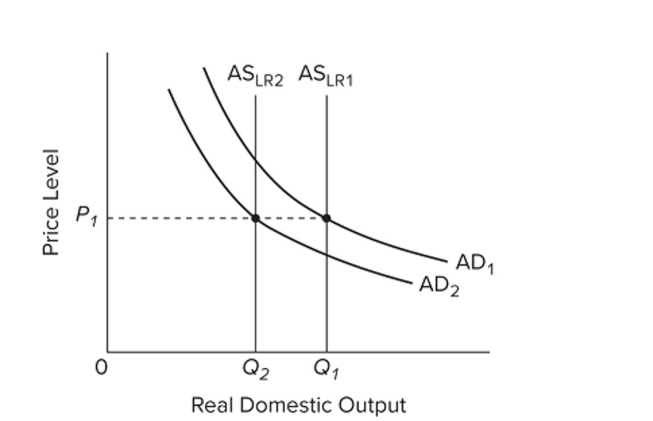Exam 19: Current Issues in Macro Theory and Policy
Exam 2: The Market System and the Circular Flow274 Questions
Exam 3: Demand, Supply, and Market Equilibrium357 Questions
Exam 4: Market Failures Caused by Externalities Asymmetric Information222 Questions
Exam 5: Public Goods, Public Choice, and Government Failure242 Questions
Exam 6: An Introduction to Macroeconomics243 Questions
Exam 7: Measuring Domestic Output and National Income238 Questions
Exam 8: Economic Growth274 Questions
Exam 9: Business Cycles, Unemployment, and Inflation298 Questions
Exam 10: Basic Macroeconomic Relationships233 Questions
Exam 11: The Aggregate Expenditures Model126 Questions
Exam 12: Aggregate Demand and Aggregate Supply320 Questions
Exam 13: Fiscal Policy, Deficits, and Debt401 Questions
Exam 14: Money, Banking, and Financial Institutions265 Questions
Exam 15: Money Creation285 Questions
Exam 16: Interest Rates and Monetary Policy405 Questions
Exam 17: Financial Economics356 Questions
Exam 18: Extending the Analysis of Aggregate Supply268 Questions
Exam 19: Current Issues in Macro Theory and Policy279 Questions
Exam 20: International Trade339 Questions
Exam 21: The Balance of Payments, Exchange Rates, and Trade Deficits315 Questions
Exam 22: The Economics of Developing Countries269 Questions
Select questions type
The idea that an economy can get stuck in either an unemployment equilibrium or an inflation equilibrium is most closely associated with
(Multiple Choice)
4.8/5  (43)
(43)
Suppose aggregate demand in the economy sharply declines. Mainstream economists say that the price level (at least for a time) will _______ and real output will _________.
(Multiple Choice)
5.0/5  (31)
(31)
If the economy's real output is growing by 2.5 percent a year, then, in order to maintain price stability, a monetarist would most likely recommend that money supply should be
(Multiple Choice)
4.7/5  (33)
(33)
How do theories of mainstream macroeconomics and monetarism differ in relation to monetary
policy?
(Essay)
5.0/5  (32)
(32)
According to rational expectations theory, discretionary monetary and fiscal policy will be ineffective primarily because of the
(Multiple Choice)
4.9/5  (30)
(30)
Monetarists say the velocity of money is highly variable and there is no close link between the
money supply and the level of economic activity.
(True/False)
4.9/5  (42)
(42)
 Refer to the diagram. The real-business-cycle view of recession would best be described by
Refer to the diagram. The real-business-cycle view of recession would best be described by
(Multiple Choice)
4.7/5  (45)
(45)
According to the equation of exchange, changes in the money supply can affect
(Multiple Choice)
4.8/5  (38)
(38)
In the rational expectations theory, a temporary change in real output could result from
(Multiple Choice)
4.9/5  (34)
(34)
Which of the following is the basic equation underlying aggregate expenditures?
(Multiple Choice)
4.8/5  (30)
(30)
Showing 121 - 140 of 279
Filters
- Essay(0)
- Multiple Choice(0)
- Short Answer(0)
- True False(0)
- Matching(0)